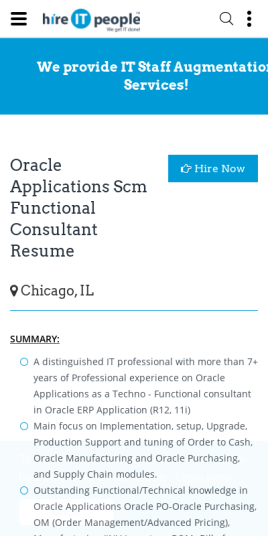
A holding company is a type corporation that doesn't produce its own products or services but acts as a corporate group. Its main purpose is to act as a holding company for several different companies. While some companies can be combined in one holding company, others might have their own subsidiaries. In this article we will discuss the advantages and disadvantages of forming a holding company, and the various forms available.
Benefits to starting a holding business
When you are looking for a way to protect your investments, you may want to consider setting up a holding company. Setting up this type of company is relatively easy, but it does require a significant capital backup. These holding companies usually purchase large blocks or shares. This makes them a viable business model for experienced investors. Listed below are a few of the benefits of starting a holding company. This is a great option for small business owners looking to reduce their liability and protect their assets.
Holding companies are able to lower operating capital costs because they are protected against the risks of other businesses. Bakery will not have to worry about its subsidiaries being sued if Bakery goes bankrupt. Furthermore, subsidiaries have the option to take advantage downstream guarantees to get lower-interest loans. A holding company can also sell shares of its failed subsidiaries to reduce their risk of default. This is a benefit for the operating business as it reduces its risk of default.

Disadvantages of starting a holding company
Although there are many benefits to starting a holding corporation, there are also some disadvantages. Holding companies can often get better financing terms due to the fact that they pool their finances. In addition, a holding company can control many more companies with less capital. A holding company can easily take control of a company by purchasing the majority of its stock through an LLC. This makes it the largest shareholder.
It can be difficult to establish a holding company. The first step is to determine the type of entity that your holding company will be. You will need to decide whether it is a corporation, LLC, limited liability or LLC. Once you have determined the type of business entity, you'll need to decide on its tax structure. Holding companies must be separate from other businesses, though. A limited liability company, for example, should not be considered a holding company that runs its own business.
Tax implications of starting your holding company
The tax consequences of starting an organization as a holding company will vary depending on the way it is set up. A company with only one owner is treated as a sole proprietor and does not need to file an IRS return. However, they must report all their profits on their tax returns. Similar to a partnership, a holding company owned by two partners will be treated the same way. Each partner must pay taxes on their share of the returns.
Other considerations than the tax implications are administrative ease. Many lenders require that the companies operate through holding companies to minimize the risks involved with compliance and enforcement. It is unlikely, however, that a company created for tax reasons will get the tax benefits it originally intended. Before making any final decisions, it is crucial to consider all the pros and cons of setting up a holding company.

Forms of holding corporations
There are several types of holding corporations. A holding company has the main purpose of controlling another company. Its owners generally own most of the shares of the companies that it controls. You must sign a contract to authorize the formation of a holding company. You must also obtain legal counsel in this regard. Here are some examples of different types of holding companies. Let's start by looking at the most common.
Pure holding companies are the first type. This type of company exists only to hold stock for another firm. It doesn't run its own businesses. The other type is a mixed holding company, which controls other firms while also engaging in its own operations. A conglomerate, which is a holding-operating company, is commonly used. Its name reflects that the company owns a number of other companies. These entities can all be classified as holding corporations.
FAQ
What does it mean to be a consultant?
Consultants are those who offer services to other people. This is more than a job title. You help others achieve their goals. This is done by helping others understand their options and making the right decisions.
Consultants are experts in finding solutions to the problems and challenges that arise while working on projects. They provide advice and guidance about how to implement those solutions.
A consultant should be able to answer questions about anything related to business, technology, finance, law, management, leadership, strategy, operations, customer service, human resources, etc.
What can I expect from my consultant?
After you have selected your consultant, expect to hear from them within a few business days. They will request information about your company including its mission and goals, products, services, budget, and other pertinent details. Next, they'll provide a proposal describing the scope and estimated time frame, fees, deliverables or milestones, as well as an estimate of costs.
If everything is in order, then the parties will enter into a written contract. The terms of the contract will depend on the type of relationship between the two parties (e.g., employer-employee, employer-independent contractor).
If everything goes well, the consultant should start work immediately. The consultant will have full access to your files and resources. You'll also have access to their skills and knowledge.
But don't assume that anyone who is a consultant has all the answers. It takes effort and practice to become an expert in whatever field you consult. Your consultant should not assume that they know everything about you business.
What qualifications does a consultant need?
It is not enough to have an MBA degree. You must also have experience as a consultant. You must have at least two years' experience working in consulting and/or training within a large company.
You should have had experience working with senior management to create strategy. This will require you to be comfortable sharing your ideas with clients and getting their buy-in.
A professional qualification exam like the Certified Management Consultant (CMC), Chartered Management Institute, is required.
Statistics
- 67% of consultants start their consulting businesses after quitting their jobs, while 33% start while they're still at their jobs. (consultingsuccess.com)
- On average, your program increases the sales team's performance by 33%. (consultingsuccess.com)
- So, if you help your clients increase their sales by 33%, then use a word like “revolution” instead of “increase.” (consultingsuccess.com)
- "From there, I told them my rates were going up 25%, this is the new hourly rate, and every single one of them said 'done, fine.' (nerdwallet.com)
- Over 50% of consultants get their first consulting client through a referral from their network. (consultingsuccess.com)
External Links
How To
How to Find the Best Consultant
Ask yourself what you want from your new consultant before you start looking. Before you begin searching for a consultant to help you, you should be clear on your expectations. A list of what you expect from a consultant is helpful. These could include professional expertise, technical skills and project management abilities, communication skills, availability, and other things. After you have listed your requirements, it might be a good idea to ask colleagues and friends for their recommendations. Ask them what their experience with consultants was like and how they compare to yours. Research online if you don’t already have recommendations. You will find many websites such as LinkedIn, Facebook Angie's List, Indeed and Indeed where people can leave reviews about their past work experiences. Look at the ratings and comments left by others and use this data as a starting point for finding potential candidates. Once you have a short list of candidates, contact them to arrange an interview. You should discuss your requirements with the candidates and ask them how they can help. It doesn't matter whether they were recommended to you or not; just ensure that they understand your business objectives and can demonstrate how they can help you reach those goals.